
Editor's note: This is a nostalgic theater.
Since the hit "Playing on Qianlong" (1991), the film and television industry seems to have discovered the "rich ore" of "Qing Palace Opera". For a time, Qing palace dramas became popular, and the whole screen was full of "Ama" and "Gege". Among them, there are naturally many "jokes" that have nothing to do with history, or "real dramas" that are advertised as being loyal to historical facts. In 1992, "A Generation of Empress Da Yu'er" was somewhere between the two, which could be called "both true and false".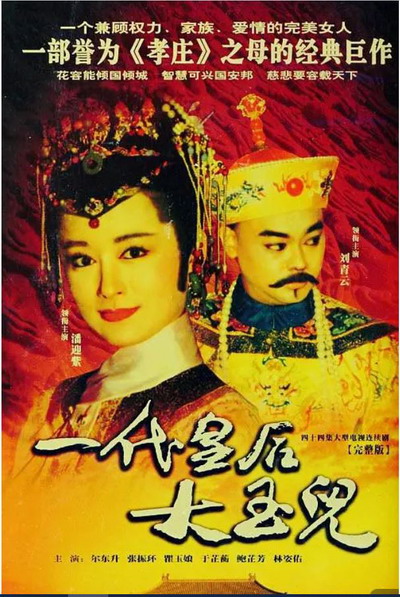
Saying "false", first of all because the name "Da Yu'er" in the title of even the play cannot be found in the official history at all. The Qing Palace has always been known for its complicated history. In the early Qing Dynasty, there were such examples as Emperor Shunzhi who was actually the son of Dorgon, Princess Changping (the daughter of Emperor Chongzhen of the Ming Dynasty) incarnated as a one-armed god Ni, Concubine Dong E was Dong Xiaowan, and Shunzhi was a monk before he died. and other famous bridges. And the TV series "The Empress of the Generation" has almost all the unofficial history of the early Qing Dynasty. Not to mention that Da Yuer was captured by Lin Danhan (the leader of the Chahar tribe in Mongolia, mistaken for Khalkha in the play), and even the episodes such as being sent by Huang Taiji to Jiamusi are purely "original".
A major feature of the unofficial history is that the plot is unexpected, which also improves the visibility of "The Empress of the Generation" to a certain extent. This TV series was first broadcast in Taiwan's "Zhongshi" in May 1992, and it was followed by the "Ancient God Drama" " Green Riverside Grass ", which caused a craze for viewers. It can be described as "a lot of pressure". But "A Generation of Empress Da Yu'er" is also worthy of the prime time of 8 o'clock in the evening, and still achieved high ratings. Even the variety show "Variety Kaleidoscope" in Taiwan at that time once created two characters "Big Taro" (played by Cao Lan) and "Duoer Gun" (played by Huang Zijiao) in the guessing unit "Everyone Says Their Own" to imitate Big Yu'er and Dorgon in this play.
In fact, from the perspective of 30 years later, the "Fufu Dao" of "The Empress of the Generation" can be said to be shoddy. The Qing Dynasty palace built in the studio was quite simple, and during the location recording, props such as watches, telephone poles, and asphalt roads that should not have appeared in costume dramas were included. As for the lines, Su Shi's "I hope people will last forever, and we will live together in a thousand miles" is called a low-level mistake in Tang poetry.
Therefore, the viewing and entertainment of "A Generation of Empress Da Yu'er" is largely due to the performance of the actors. The actor who plays "Big Yu'er" in the play is Pan Yingzi, who debuted in Hong Kong's Shaw Brothers Film Company and became popular in Taiwan. When she starred in this play, Pan Yingzi was over forty years old, but she gave the audience the impression that she was full of girlishness, and her excellent maintenance was therefore regarded as a "myth of immortality" by some media.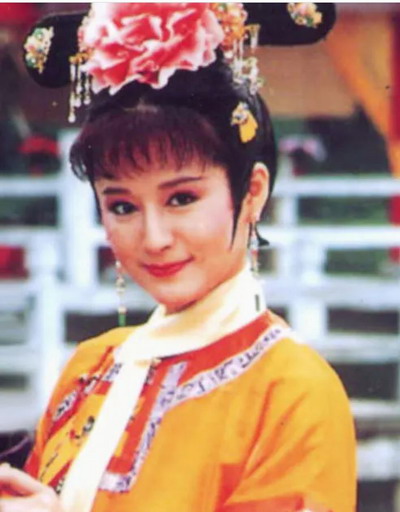
Having said that, the status of women in ancient times was low, and even noble women like Da Yuer were appendages of male power. These women are in a dangerous environment all the time. Women in the palace are subject to multiple oppressions, and they rely on the strength of men in the process of pursuing interests or just for self-protection, so "love seasoning" is added to it, which has become a palace drama. the main "seasoning".
For example, in "A Generation of Empress Da Yu'er", the love entanglement between Dorgon (Er Dongsheng) and Da Yu'er is the main line. Yu'er and Dorgon were childhood sweethearts, but they were robbed of love by Huang Taiji, so the meaning of bitterness runs through the whole play. Every time when Da Yu'er was in danger, Dorgon did not hesitate to take risks to rescue him or even did not care about his own life, and he did not hesitate to turn against Huang Taiji.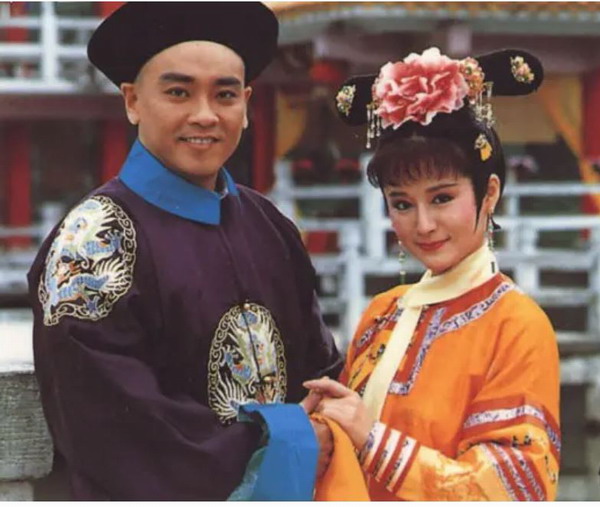
One is Huang Taiji (played by Liu Qingyun). Huang Taiji in "The Empress of the Generation" can be said to be a villain. Although he has a royal air, he acts sinister and sinister. After Nurhaci died, it was Huang Taiji who forced Dorgon's mother to death in the name of burial. After ascending the throne, the eunuch Wei Xiaotian became a pawn of Huang Taiji again, doing some "dirty work" under his instigation (of course, Eunuch Wei himself could not escape the end of the rabbit). In his later years, Huang Taiji's character became more and more violent, and he sent Da Yu'er to Jiamusi to separate mother and son. All in all, Huang Taiji in the play can be called a "hero".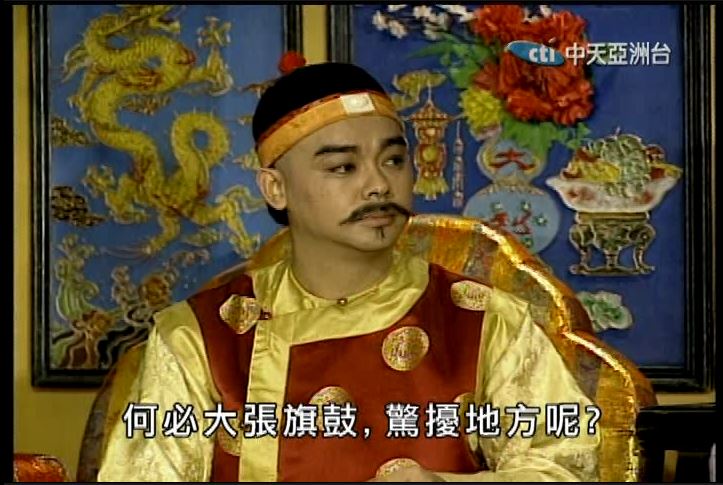
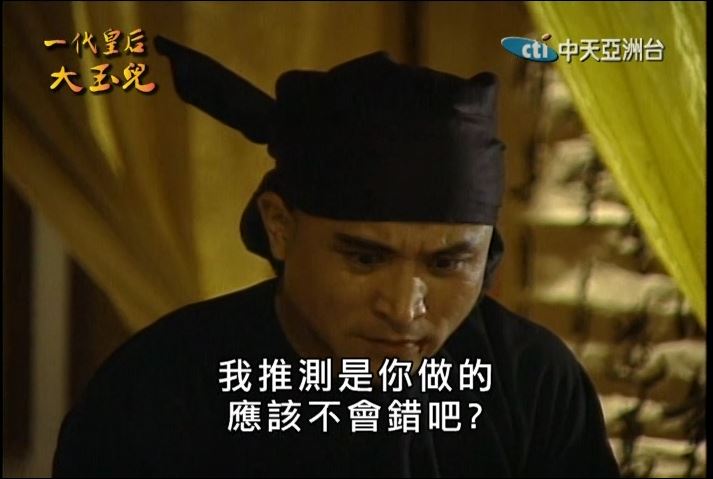
Moreover, this person is also possessed of stunts, often saving the life of Da Yuer at a critical juncture. It was also Runfu who made a secret move to take his life when Huang Taiji was in madness, so that Da Yu'er's fate would not be irreversible. The explanation for being so loyal to Runfu in the play is that Da Yuer saw a young herdsman tied to a fence when she was young and felt pity to let him go, and this person was Runfu. This setting has some meaning of "retribution of good and evil".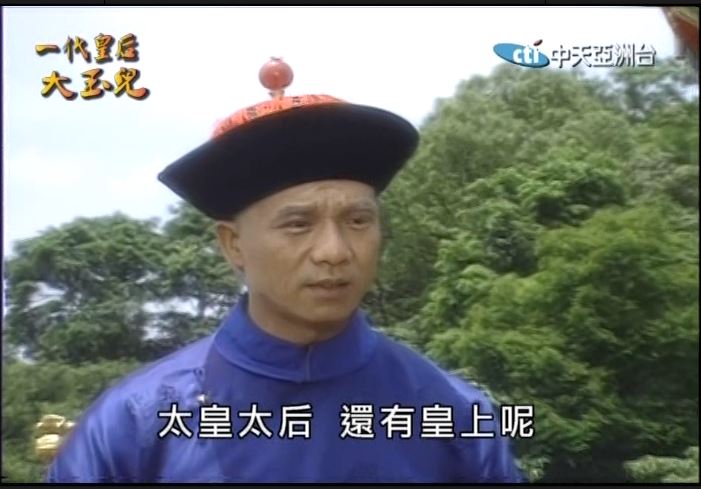
Since the hit "Playing on Qianlong" (1991), the film and television industry seems to have discovered the "rich ore" of "Qing Palace Opera". For a time, Qing palace dramas became popular, and the whole screen was full of "Ama" and "Gege". Among them, there are naturally many "jokes" that have nothing to do with history, or "real dramas" that are advertised as being loyal to historical facts. In 1992, "A Generation of Empress Da Yu'er" was somewhere between the two, which could be called "both true and false".

"The Queen of the Generation" poster
The reason for saying "true" is because this 44-episode TV series focuses on the life of the concubine of Qing Taizong Huang Taiji, Bolzijit Bumbutai (Empress Xiaozhuang, 1613-1688), and tells the story of the beginning of the Qing Dynasty (Nurhaci). , Huang Taiji, Emperor Shunzhi, Emperor Kangxi) history. Most of the chronological nodes in the play are based on historical evidence.Saying "false", first of all because the name "Da Yu'er" in the title of even the play cannot be found in the official history at all. The Qing Palace has always been known for its complicated history. In the early Qing Dynasty, there were such examples as Emperor Shunzhi who was actually the son of Dorgon, Princess Changping (the daughter of Emperor Chongzhen of the Ming Dynasty) incarnated as a one-armed god Ni, Concubine Dong E was Dong Xiaowan, and Shunzhi was a monk before he died. and other famous bridges. And the TV series "The Empress of the Generation" has almost all the unofficial history of the early Qing Dynasty. Not to mention that Da Yuer was captured by Lin Danhan (the leader of the Chahar tribe in Mongolia, mistaken for Khalkha in the play), and even the episodes such as being sent by Huang Taiji to Jiamusi are purely "original".
A major feature of the unofficial history is that the plot is unexpected, which also improves the visibility of "The Empress of the Generation" to a certain extent. This TV series was first broadcast in Taiwan's "Zhongshi" in May 1992, and it was followed by the "Ancient God Drama" " Green Riverside Grass ", which caused a craze for viewers. It can be described as "a lot of pressure". But "A Generation of Empress Da Yu'er" is also worthy of the prime time of 8 o'clock in the evening, and still achieved high ratings. Even the variety show "Variety Kaleidoscope" in Taiwan at that time once created two characters "Big Taro" (played by Cao Lan) and "Duoer Gun" (played by Huang Zijiao) in the guessing unit "Everyone Says Their Own" to imitate Big Yu'er and Dorgon in this play.
In fact, from the perspective of 30 years later, the "Fufu Dao" of "The Empress of the Generation" can be said to be shoddy. The Qing Dynasty palace built in the studio was quite simple, and during the location recording, props such as watches, telephone poles, and asphalt roads that should not have appeared in costume dramas were included. As for the lines, Su Shi's "I hope people will last forever, and we will live together in a thousand miles" is called a low-level mistake in Tang poetry.
Therefore, the viewing and entertainment of "A Generation of Empress Da Yu'er" is largely due to the performance of the actors. The actor who plays "Big Yu'er" in the play is Pan Yingzi, who debuted in Hong Kong's Shaw Brothers Film Company and became popular in Taiwan. When she starred in this play, Pan Yingzi was over forty years old, but she gave the audience the impression that she was full of girlishness, and her excellent maintenance was therefore regarded as a "myth of immortality" by some media.

Pan Yingzi as Da Yuer
"Da Yu'er", or the Empress Xiaozhuang, is a well-known historical figure of the Qing Dynasty. As a typical representative of the female image of the Qing court regime, its film and television image can be described as many stars. Since the 1940s and 1950s, there have been more than 30 film and television dramas involving the female image of Xiaozhuang. The setting of "A Generation of Empress Da Yu'er" is somewhat similar to "The Secret History of Xiaozhuang" ten years later. It tells about Da Yu'er's independent and independent life from a grassland woman to an empress dowager. A female figure with flesh and blood, emotional and troubled, independent and assertive.Having said that, the status of women in ancient times was low, and even noble women like Da Yuer were appendages of male power. These women are in a dangerous environment all the time. Women in the palace are subject to multiple oppressions, and they rely on the strength of men in the process of pursuing interests or just for self-protection, so "love seasoning" is added to it, which has become a palace drama. the main "seasoning".
For example, in "A Generation of Empress Da Yu'er", the love entanglement between Dorgon (Er Dongsheng) and Da Yu'er is the main line. Yu'er and Dorgon were childhood sweethearts, but they were robbed of love by Huang Taiji, so the meaning of bitterness runs through the whole play. Every time when Da Yu'er was in danger, Dorgon did not hesitate to take risks to rescue him or even did not care about his own life, and he did not hesitate to turn against Huang Taiji.

Da Yuer and Dorgon
However, the most outstanding characters in the play are actually not the "hard-to-have mandarin ducks", but the other two.One is Huang Taiji (played by Liu Qingyun). Huang Taiji in "The Empress of the Generation" can be said to be a villain. Although he has a royal air, he acts sinister and sinister. After Nurhaci died, it was Huang Taiji who forced Dorgon's mother to death in the name of burial. After ascending the throne, the eunuch Wei Xiaotian became a pawn of Huang Taiji again, doing some "dirty work" under his instigation (of course, Eunuch Wei himself could not escape the end of the rabbit). In his later years, Huang Taiji's character became more and more violent, and he sent Da Yu'er to Jiamusi to separate mother and son. All in all, Huang Taiji in the play can be called a "hero".

Liu Qingyun as Huang Taiji

Wei Xiaotian who does dirty work for Huang Taiji
In contrast, a supporting role, the eunuch Runfu (played by Zhang Zhenhuan), who is completely a fictional character, is even more remarkable. In the first half, he was just a eunuch serving Dayuer, but with the development of the plot, especially in the second half, his persuasion turned out to be an important turning point in the plot to wake up the people in the court, which can be called "" Awakened and independent".Moreover, this person is also possessed of stunts, often saving the life of Da Yuer at a critical juncture. It was also Runfu who made a secret move to take his life when Huang Taiji was in madness, so that Da Yu'er's fate would not be irreversible. The explanation for being so loyal to Runfu in the play is that Da Yuer saw a young herdsman tied to a fence when she was young and felt pity to let him go, and this person was Runfu. This setting has some meaning of "retribution of good and evil".

Eunuch Runfu who followed Dayuer's life
In addition to the plot, like the popular TV dramas in Hong Kong and Taiwan of the same time, the beautiful interlude also adds a lot of color to "The Queen of the Generation". The opening song "Laughing and Embrace the Dream" (written by Chen Ziwei and sung by Gao Shengmei) and the ending song "Acacia Longer Than Dreams" (written by Wu Ruoquan and sung by Fei Yuqing) are both excellent ancient-style tunes. And the lyrics "I hope it's empty, I hope it's empty" seems to be the fate of the love between Dayuer and Dorgon in the play.Related Posts